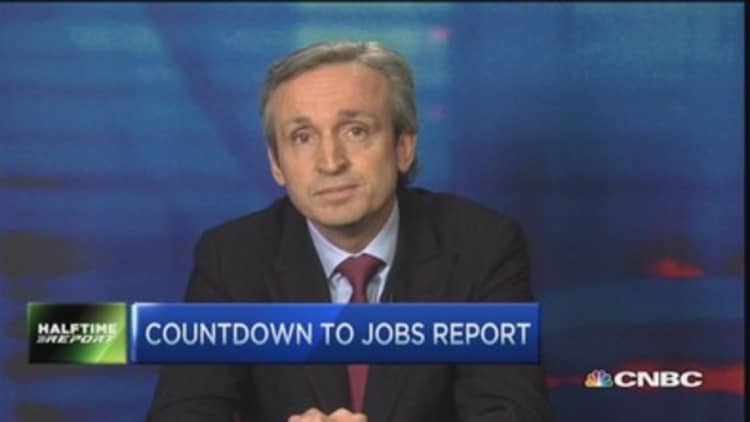
U.S. stocks could continue their overall decline on Monday, no matter how good the March job report is.
Markets are closed on Good Friday, and the Monday afterwards is historically the S&P 500's worst post-holiday trading session. When the key monthly jobs report comes out on that Friday, stocks perform even more poorly.
Analysis using the quantitative tool Kensho showed the three major indices declined much more on Mondays following the release of jobs numbers on a Good Friday.
The two events coincided ten times since 1980, with the last occurrence in 2012.
For the Mondays after a jobs Friday and Easter Sunday, the S&P 500 had negative returns 60 percent of the time, with a median percent return of negative 0.82 percent. The Nasdaq 100 had negative returns 78 percent of the time, with an average return of negative 0.82 percent. The Dow Jones industrial average traded negative 67 percent of the time, with a median return of negative 0.38 percent.
Investors increasingly focus on the monthly jobs report as a key indicator for the timing of a Federal Reserve interest rate hike.
Stocks struggled for consensus in the days ahead of the release of the March jobs report on Good Friday, when stock markets are closed. Only the futures market will be open on Friday after the economic report comes out at 8:30 a.m.
That leaves an entire day before investors can take action on the jobs report on Monday. Since European markets and most Asian exchanges are closed on Monday, U.S. markets will have little overseas movement to trade off.
"Basically any number lower than anticipated will probably be welcomed that doesn't raise Fed fears. On the other hand, a number higher (than anticipated) could induce Fed fears," said Peter Cardillo, chief market economist at Rockwell Global Capital.
Analysts expect an increase of 245,000 in nonfarm payrolls in March, with the unemployment rate unchanged at 5.5 percent. Average hourly wages are expected to increase 0.2 percent.
Read More'Corrupted' bond market giving investors headache
A rough Monday doesn't spell doom for the entire week, however.
Stocks actually traded positive 70 percent of the time with a median gain of more than 0.70 percent, Kensho analysis showed.
Disclosure: CNBC's parent NBCUniversal is a minority investor in Kensho.


